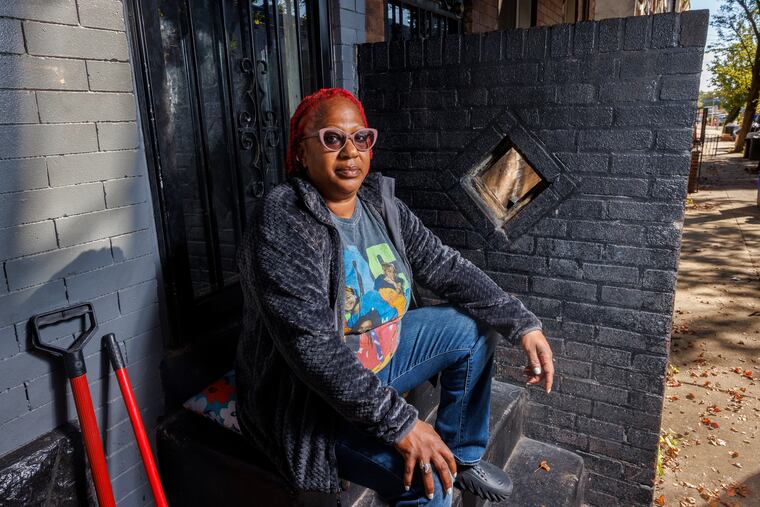A Temple program is aiming to get more people screened for lung cancer
The American Cancer Society updated its recommendation for who should be screened earlier this month.

For the past 40 years, Trudy Clinkscales has smoked about a pack of cigarettes a day.
She knew the habit she picked up as a 13-year-old could lead to lung cancer, but like many smokers, couldn’t seem to quit. In February, Clinkscales, of North Philadelphia, asked her doctor about getting screened.
The X-ray showed a spot on her right lung that turned out to be Stage 1 lung cancer. Doctors were able to eliminate the tumor, which was still in an early stage, by removing the top portion of her right lung. The 56-year-old home health aide has been in remission since.
Lung cancer is the leading cause of cancer deaths and has one of the lowest survival rates among cancers, according to the American Lung Association. But five-year survival rates have increased 33% over the past decade, partly because more people are being screened earlier.
But many people are still unaware they should get screened, don’t know where to go for help, or fear being charged fees they can’t afford. A new education and outreach initiative by the Temple Lung Center has shown signs of early success in increasing screening among at-risk people by helping people understand who should get tested and improving access to care.
Screening recommendations
The American Cancer Society expanded its screening recommendation in November to include a larger age range and more current and former smokers. Adults aged 50 to 80 who have a 20 “pack-year” smoking history and currently smoke or formerly smoked, should be scanned annually for lung cancer. A pack-year equals the number of years smoked multiplied by the average number of packs smoked per day.
Since launching in 2022, the Temple Healthy Chest Initiative (THCI) has worked to improve patient outreach and education. Along with partners at Fox Chase Cancer Center, Klein College of Media and Communication, and the Temple Center for Urban Bioethics, Temple held patient focus groups to learn about screening barriers.
“Our main goals were to get more patients screened, predominantly more minority patients and women,” said Gerard Criner, director of the Temple Lung Center. “We also wanted to identify other related health issues that were detected on the scan that were causing their symptoms, but they were unaware of.”
Overcoming obstacles
Community members who participated in the focus groups said they didn’t know about Temple’s screening program. Others didn’t realize they were eligible for lung cancer screening. Some said they don’t trust medical institutions and avoid going to the doctor.
“A lot of people in this community don’t have insurance or are underinsured, so they didn’t feel they had the funds or capacity or resources to get the screening, even if they were eligible,” said Lauren Kogen, assistant professor at Klein College.
THCI has attempted to address some of those barriers by distributing educational materials about lung cancer and screening guidelines — published in multiple languages — through community organizations and faith-based groups. A social media campaign and website with videos, patient stories, and a pack-year calculator are intended to help people understand the significance of getting screened.
THCI has also attempted to make it easier for patients to access screening, by connecting those who reach out with nurse navigators to walk them through each step. The group enlisted help from primary care doctors and other providers, asking them to share educational materials developed by THCI.
“We are working with primary care doctors to give them more information, tools, and education around the benefits of screening so they can have that conversation in their primary care office,” said Stefanie Murphy, associate vice president of marketing at Temple Health.
Chest health
A key revelation from THCI’s focus groups: “Lung cancer” is a scary diagnosis, and talking about it sometimes scares patients away. Doctors found they were able to reach more people by shifting their messaging to emphasize “chest health.”
“We hammered home the positive framing, emphasizing that early diagnosis is helpful,” said Kogen.
The CT scan needed to check for lung cancer can reveal other health issues, such as COPD, sleep apnea, osteoporosis, and cardiovascular disease.
So far, it’s working.
“We’ve increased our patient screening 20-fold,” said Criner. Screening is up 35% among Black individuals and 54% among women.
The group expects to screen at least 4,500 patients this year. Their goal is to reach 10,000 patients each year.
Clinkscales is thankful that her cancer was caught early. She is trying to quit smoking completely, but for now is down to about four cigarettes a day.
“Getting the scan was very easy,” she said. “I’m so glad I did.”